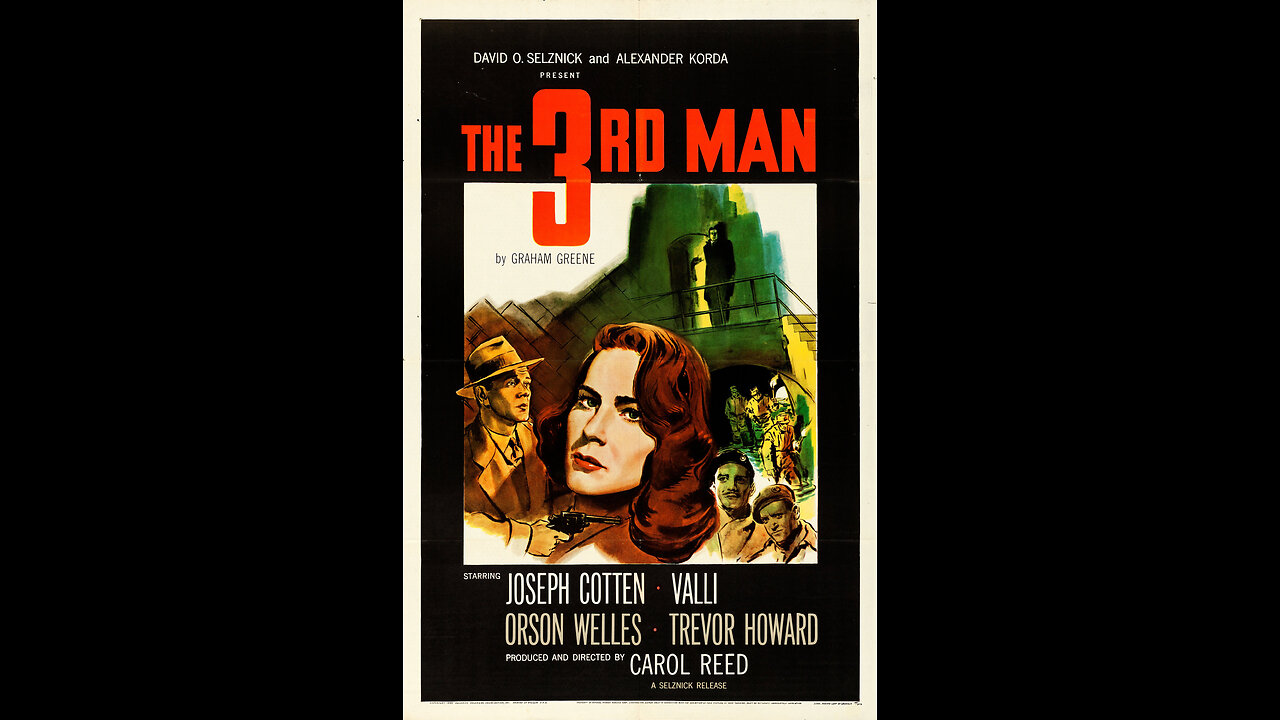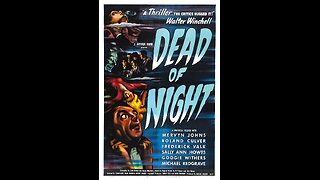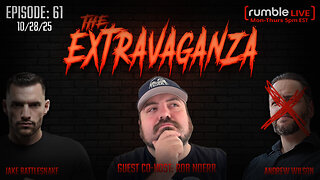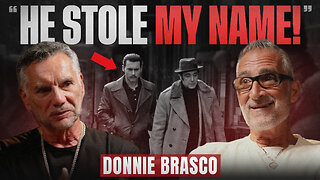Premium Only Content

The Third Man (1949) | Directed by Carol Reed
The Third Man is a British film noir set in postwar Vienna, a city divided among Allied powers and rife with corruption. American pulp novelist Holly Martins arrives to meet his old friend Harry Lime, only to learn that Lime has been killed in a mysterious accident. As Martins investigates, he becomes entangled in a web of deceit, espionage, and moral ambiguity—culminating in the revelation that Lime is not only alive but deeply involved in the black-market trade of diluted penicillin. The film’s haunting atmosphere, striking visuals, and unforgettable zither score make it one of cinema’s great masterpieces.
Genre: Film Noir, Mystery, Thriller
Director: Carol Reed
Carol Reed (1906–1976) was one of Britain’s most distinguished filmmakers, known for his mastery of atmosphere, tension, and character-driven storytelling. Starting in the 1930s, Reed developed a reputation for intelligent, visually inventive films that explored moral complexity. His best-known works include The Fallen Idol, The Third Man, and Oliver!, the latter earning him an Academy Award for Best Director. Reed’s collaboration with novelist Graham Greene on The Third Man produced one of the most acclaimed British films ever made, renowned for its noir aesthetic and moral depth.
Star Cast:
Joseph Cotten as Holly Martins
Alida Valli as Anna Schmidt
Orson Welles as Harry Lime
Trevor Howard as Major Calloway
Bernard Lee as Sergeant Paine
Paul Hörbiger as Porter
Ernst Deutsch as Baron Kurtz
Siegfried Breuer as Popescu
Wilfrid Hyde-White as Crabbin
The Third Man was an international critical and commercial success upon release. Audiences were captivated by its intrigue, shadow-drenched cinematography, and the morally ambiguous world it portrayed. Critics hailed Orson Welles’s performance as Harry Lime, though he appeared only briefly, and the film quickly became a cultural landmark of postwar cinema. It won the Grand Prix at the 1949 Cannes Film Festival and the Academy Award for Best Cinematography (Black-and-White). Over time, it has been consistently ranked among the greatest films ever made, celebrated for its artistry, haunting score, and unforgettable final scene.
Fun Facts:
The screenplay was written by Graham Greene, who first drafted the story as a novella to develop the plot before adapting it for the screen.
Orson Welles’s famous line, “In Italy for thirty years under the Borgias…” was improvised and is now one of cinema’s most quoted speeches.
The film’s distinctive zither score, composed and performed by Anton Karas, became a worldwide hit and sold millions of records.
Much of the film was shot on location in the bombed-out ruins of Vienna, lending it authentic postwar realism.
The unforgettable “cuckoo clock” speech was not in Greene’s script but added by Welles during filming.
Welles reportedly disliked working in Vienna’s sewers and used body doubles for some of the underground chase scenes.
The film’s ending, featuring Anna silently walking past Holly, was insisted upon by director Carol Reed against producer David O. Selznick’s wishes—and is now regarded as one of the greatest closing scenes in cinema history.
In 1999, the British Film Institute voted The Third Man the greatest British film of the 20th century.
* This Rumble Movie Channel is comprehensively indexed on https://kinoquick.com - find you favourite movies fast & free!
* Follow this channel to be notified of daily movie updates.
-
 1:43:05
1:43:05
Classic Films & Movies Archive
9 days agoDead of Night (1945) | Directed by Alberto Cavalcanti
225 -
 59:12
59:12
BonginoReport
2 hours agoDon Lemon calls Megyn Kelly chopped, unc and TRANS?! - Nightly Scroll w/ Hayley Caronia (Ep.165)
26K15 -
 1:29:08
1:29:08
Kim Iversen
3 hours agoNick Fuentes & Tucker Carlson SQUASH Their ‘Fed’ Beef!
42.7K71 -
 LIVE
LIVE
SpartakusLIVE
10 hours agoREDSEC BATTLE ROYALE || Battlefield 6 w/ The Boys
86 watching -
 1:03:22
1:03:22
TheCrucible
2 hours agoThe Extravaganza! EP: 61 with Guest Co-Host: Rob Noerr (10/28/25)
47.3K4 -
 DVR
DVR
Nikko Ortiz
3 hours agoBATTLEFIELD 6 NEW BATTLE ROYAL REDSEC... |Rumble Live
9402 -
 LIVE
LIVE
StoneMountain64
9 hours agoBattlefield REDSEC Battle Royale GAMEPLAY & 1st Impressions (Free to Play LAUNCH DAY)
125 watching -
 1:33:39
1:33:39
Michael Franzese
2 hours agoThe Real Donnie Brasco: REVEALS Why Joe Pistone Stole His Name
14.2K1 -
 1:12:46
1:12:46
Candace Show Podcast
2 hours agoCharlie Ripped A Hole In Reality | Candace Ep 253
35.1K75 -
 LIVE
LIVE
Tundra Tactical
3 hours agoProfessional Gun Nerd Plays Battlefield 6
43 watching